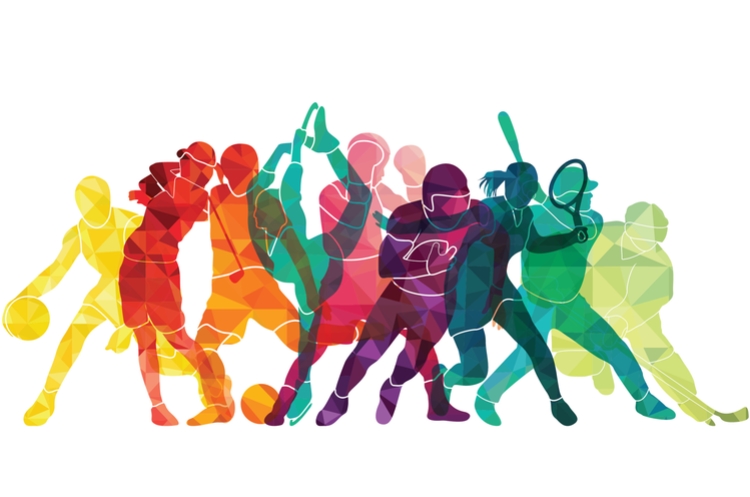The Power of Sport

Sport’s power is stunning. Its ability to unite, inspire inclusivity, promote global health and strive for equality and peace beyond political borders can be unparalleled. I’ve been blessed to be a part of global initiatives that bring together world leaders in sport, faith and business to help move the needle on humanitarian issues such as homelessness and the refugee crisis.
I’ve worked on many national and international sport matters on both the business and humanitarian side. Each side has its place in this world and is necessary for the success of the other. However, the lines between humanitarian and business matters are not always black and white, they are sometimes blurred.
Lately, I’ve been asked to address one of the most challenging issues in sports – investigations and allegations of physical and sexual abuse. This abuse can lead to incredible pain and loss.
In sports, money and fame equate to power. In many instances, political games are played at the highest level and proper governance becomes secondary. Improper and ineffective governance plays a critical role in allowing abuse of athletes to occur.
A couple of decades ago (longer than I wish to admit), I was a Canadian national team athlete. I was lucky to never experience abuse. I had good support systems and coaches – some tougher than others – but no one crossed the line. Despite the fact that my career as a serious athlete ended decades ago, I remain grateful for all that sport and competing at a high level has allowed me to do with the rest of my life.
Sport creates significant benefits and opportunities for individuals: good health, work ethic, understanding pressure, learning to overcome loss, improved confidence, and the feeling of pride that comes from representing your club, city, province or country. For some, it can also mean fame or an income beyond what they could have imagined. With that in mind, it’s also important to understand that the environment in which athletes grow and exist can result in heightened vulnerabilities, putting young athletes into situations in which they can be manipulated or forced into doing things that are unimaginable to most of us.
High-performance and high-profile sports are often built from feeder programs, in which children and young adults train to be future stars. These young athletes depend almost entirely on other people (parents, coaches, trainers, etc.) for their development and success. Their training and competition often requires travelling without parents and living away from home at a young age. Adults – coaches, physicians, trainers, scouts and therapists – dictate whether or not they make a team, and whether their dreams of competing at a provincial or national level, in the Olympics, or as a professional athlete will come true.
A few years ago, I visited the Sheldon Kennedy Child Advocacy Centre in Calgary. The incentive to create this organization stemmed in part from the long-term sexual, physical and mental abuse that Sheldon Kennedy suffered as a hockey player. For those who aren’t aware, the Sheldon Kennedy Child Advocacy Centre tends to deal with the most severe cases of child abuse in its jurisdiction. Walking through the Centre’s corridors, it was incredible to witness its comprehensive, child-focused and common sense approach to helping children and their families deal with child abuse by providing medical, legal and psychological assistance in one facility. But, as I walked through each area, I felt sick to my stomach imagining the children there and the horrors they had already faced. I stopped before entering the medical examination room and had to hold back tears so as to maintain a professional appearance. There are no words to describe the feelings of anger and sadness I experience when thinking about why that centre exists. However, if I had the power to help children and their families work through all the horrors resulting from abuse, it would be to create centres such as the Sheldon Kennedy Child Advocacy Centre in every city and town across Canada.
I also have two young sons who are involved in athletics and as they get older, they are getting more serious about their sport. I listen as they talk about their dreams of playing at a high level and watch as they work hard and make sacrifices to achieve those goals. I am a proud parent who marvels at their energy and the effort they put into pursuing their dreams, regardless of where it takes them. I also know how important the coaches and others involved in the sport are to their success. When I hear of athlete abuse cases, my gut reaction is to pull my sons from sport because it’s simply not worth the risk. However, that doesn’t do them any good and I still believe that the significant positive results of playing sports make the effort to prevent abuse appropriately worthwhile.
As a lawyer who speaks to sports organizations about preventing abuse and investigating abuse allegations, my initial advice is this: it’s hard work, and it’s ongoing. You need to ensure that the people who are involved are also committed. There is no check-the-box policy that will prevent abuse.
It is important to have appropriate policies and practices in place to ensure that allegations are investigated in a fair and timely manner. As well, having a succession plan will help to relieve pressure when allegations against high performers arise. Organizations may overlook things if a person is achieving good results. With that in mind, one of the first things I note is that, to the extent possible, an organization should try to avoid depending on only one or two people for their success. You want to ensure that the organization has a succession plan in place for critical roles and people so that when bad behaviour is suspected against a high performer, there isn’t an incentive to look the other way.
You have to get comfortable having uncomfortable conversations early. Regardless of the talent or incredible results from an individual in a position of power, not asking questions when issues are raised and turning a blind eye will ultimately make the harm worse for the athletes and the organization. It is harder for the organization to move past abuse as they will have lost the trust and integrity they need to have the trust of the parents, athletes and other stakeholders (including funding partners).
Investigating allegations of abuse is challenging, specifically balancing the rights of all parties involved. You want to ensure a safe sporting environment for the athletes, but at the same time, you cannot assume guilt before an investigation is complete and the facts support the allegations. Maintaining the right balance takes ongoing work and assessments throughout the process. You should be tired, and with the stakes involved, you should lie awake at night assessing whether you’re doing all that you can.
At the end of an investigation, you want to be able to say to both parties:
- the people who investigated the allegations were independent and unbiased;
- at least one to two people on the investigation committee had experience running investigations and know what questions to ask and who to ask them of. This is critical because in many abuse allegations, there is no tangible evidence to point to and it becomes a question of seeking additional information around the events in an effort to determine whose statements have greater credibility;
- all relevant information was before the investigating committee; and
- the relevant information was accounted for in the decision, and irrelevant information was discounted.
In the interest of all parties, you want to ensure that the investigation is done in a timely manner. Either the allegation of abuse is well-founded and you need to remove an abuser from the organization immediately, or the allegation was not well-founded and the accused needs to move to minimize the damage done to his or her reputation as a result of the allegations.
There have been many recommendations lately on how to prevent and address abuse in sport. I support many of them. From the perspective of running an investigation, I support the recommendation from Sport Canada, which is to have an established and experienced independent entity, separate from the national sport organizations, investigate the allegations. I believe that complete independence will give victims and all parties more confidence that the claims will be addressed fairly, by experienced parties, and with the appropriate processes in place.
Whether the power of sport is positive or negative depends on your perspective and experiences. We expect our athletes to work hard, respect their coaches and teammates, and make sacrifices to achieve their goals. Hopefully we can all agree that there is a line that shouldn’t be crossed in what the athletes should sacrifice in achieving those goals, and that we owe it to them to undergo the same hard work, respect and sacrifice to protect them.

